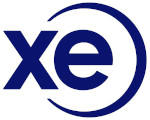In order to be eligible to open a migrant bank account in New Zealand, you must be a holder of either a work or resident visa.
Opening a bank account from abroad in New Zealand can be done online, up to an entire year before you make your move. With banks such as Westpac , ANZ and BNZ all that is required of you is to fill out a simple form, with copies of ID and other documents not needed until you arrive.
You will not typically be able to use your account for withdrawals, transfers, etc. until you visit the bank in person to confirm your identity and address. A full list of required documents provided to you in an email once you apply with your chosen bank.
However there are some items that are universally required:
- At least one form of photo I.D. (e.g. passport or NZ driver’s license)
- Proof of New Zealand residence
- An opening balance of anywhere between $10 and $500, depending on the bank you choose
If you have been issued an IRD number by the Inland Revenue you should provide this as well. While it is not needed to open an account, without it you will be charged resident withholding tax at 33%. If you think that you may wish to apply for an overdraft, loan or mortgage in New Zealand at some time, it’s wise to obtain a reference from your overseas bank manager to the effect that your account has been maintained in good order.
What you’ll get
Upon activating your bank account when you are in the country, it is most likely that you will be given an ‘EFTPOS’ debit and/or credit card. In New Zealand paying electronically is extremely popular, with cash payments now accounting for around 25% of monetary transactions. These cards are restricted however, and in order to be able to pay for items and services online you will receive a Visa debit card in the post 3 days after opening your account. Note that while regular EFTPOS cards are available from the age of 13 and over, Visa debit and credit cards are only available to over-18 year olds.
Online transactions are widely used to pay bills and direct transfers, meaning that cheques are no longer common.
For more information on using debit and credit cards in New Zealand, click here.
Bank Charges
Banks in New Zealand charge their customers for most transactions which is one of the main causes for people changing banks. An example of fees likely to be incurred are:
- Maintenance fees - $3.50 (free if statements are only received online)
- Manual transactions, e.g. withdrawals at branch - $3/transaction
- Withdrawals from other banks’ ATMs - $1
Note that these fees are based on one New Zealand bank’s accounts and other fees may be applicable, while some banks may not charge the above fees.
In order to reduce your bank charges, the Citizens’ Advice Bureau offers the following advice:
- Reduce the number of transactions you make
- Use electronic banking
- Ask if there’s a flat fee option, which may be cheaper if you need to conduct many transactions per month
General Information
The following points are applicable to most New Zealand banks:
- All regular bills such as electricity, gas, telephone, mortgage or rent, can be paid automatically by direct debit from your bank account. The creditor or your bank will provide the necessary form for you to complete and return to them. You’re protected against loss as a result of error or fraud in the system.
- If your EFTPOS card(s) is lost or stolen, inform your bank immediately.
- Safety deposit boxes are provided at most branches and are an effective (although expensive) way of keeping your valuables secure. The annual rental charge for a small box is from $50 upwards, and you must usually pay a key deposit (bond) of around $80. Most banks conduct extensive security checks, including fingerprinting, when you use a deposit box.
- Registered banks offer a range of investments in addition to regular savings accounts, including stocks and shares, bonds and securities. Although you can also buy these through a stockbroker, banks offer competitive fees, particularly for smaller transactions. You don’t need to use your own bank and may be able to find a cheaper stock and share service elsewhere (e.g. via the internet).
- Most registered banks offer a range of non-banking services, such as insurance, including life insurance, and pensions. Charges and premiums are usually competitive compared with similar products available from other sources, such as insurance brokers. However, it’s important to shop around, as some banks sell only their own products or those from certain companies, rather than choosing the best deal from the whole range available.



